The following post on Eco-Friendly Disc Golf shows ideas I uncovered when researching my previous post on The Making of Trash Panda Disc Golf. The intent is to inform and help not to lecture. Enjoy!
Note: This page contains affiliate links. This just means that if you click on a link and make a purchase, I get small percentage of the sale, at no extra cost to you. Thank you for supporting my disc golf passion project!
Eco-Friendly Disc Golf – An Introduction
Let’s call it like it is.
Disc Golf is an addictive sport.
And most of us want to get better at it.
As a result, we buy discs that go left, right, straight, roll, S-curve, etc.
For each shot that we want to throw, there is a disc for it. And there’s one from almost every company as well.
And I won’t even get started on the collector’s aspect of disc golf…
The end result?
Many of us have a crap-ton of discs that far exceeds the amount we actually need.
And I’ll be the first to admit, I have too many discs as well!
You’ll get no judgment from me. It’s the nature of the addiction…
But since we’re calling it like it is, we can probably also agree that there is far too much plastic being used and disposed of in our society/world.
I could sling facts and show you pictures, but we all know it’s a problem.
So, by extension, our growing sport that involves throwing plastic salad plates around is only adding to that aforementioned problem of plastic in our world.
To be clear, I don’t think disc golf even cracks the top 10,000 things that are adding to the climate problems the world faces.
Instead, I like the idea of disc golf, as Jesse from Trash Panda mentions, being a leader in the eco-friendly realm.
And that my friends, is where this post originated…
That AND the fact that I just wrote an article on Jesse from Trash Panda (coming soon!).
Basically, I want to help us all find other ways (including, but not limited to, disc consumption) that we can all play our part and have “disc golf be at the forefront of sustainability,” like Jesse from Trash Panda envisions…
Trash Panda Disc Golf
If by some miniscule glitch in the algorithm/matrix you didn’t make it here by way of my post on The Making of Trash Panda Disc Golf, then you should give it a look (coming soon!).

If somehow, by an even more miniscule glitch, you are not a disc golfer, you should consider becoming one.
Disc golfers comprise one of the best subsets of humans in the world. If you don’t believe me, I have a post on how great the disc golf community is here.
For everyone else, you know that I think that Jesse from Trash Panda Disc Golf is a great ambassador for the game.
He’s also one of the faces, perhaps the face, for making disc golf more eco-friendly and sustainable.
When I started this site last year, it was not my intention to write a post like this. I just wanted to feature interesting personalities in disc golf. But what can I say? The guy is inspirational!
One of the things that I really appreciate about him is how “non-judgmental” he is in his approach.

Being an avid disc golfer himself, he knows the addictive nature of the sport.
And he’s also aware of the world’s plastic problem.
Because of this he has:
- Created the sport’s first fully recycled/fully recyclable disc (found here) with more discs to come (not an affiliate btw).
- Organized a yearly disc swap during the Holiday Season in which disc golfers essentially trade discs (allowing us to get the new disc feeling without creating new discs. Info here).
- Started a disc recycling program in which old/damaged/donated discs can get sent in to be recycled (or reused) in exchange for a generous discount at his store (info found here).
- Encouraged us to buy used so new discs aren’t made to replace a new disc you buy.
But researching and writing about it got me thinking…
What are some other easy, low-maintenance, nonjudgmental ways disc golfers can help to reduce their impact (in addition to or independent of whether or not they buy discs)?
And I’ll freely admit that another title for this post that I kicked around was Ways that Disc Golfers Can Assuage Their Guilt From Buying Too Many Discs.
At times I feel guilt about my propensity to buy discs.
But I also know that I don’t like feeling shamed. I hope you don’t come out of this feeling talked down to. It’s not my intention.
I just wanted to keep the eco-friendly disc golf momentum going and share some ideas that I found.
Lastly, before I highlight certain eco strategies, I want to illuminate some side benefits as well…
Other Benefits to Eco-Friendly Disc Golf
The reduction in impact we make on the environment would classify as the primary benefit for taking some of these steps outlined below.
One secondary benefit is that you might very well save a fair amount of your money.
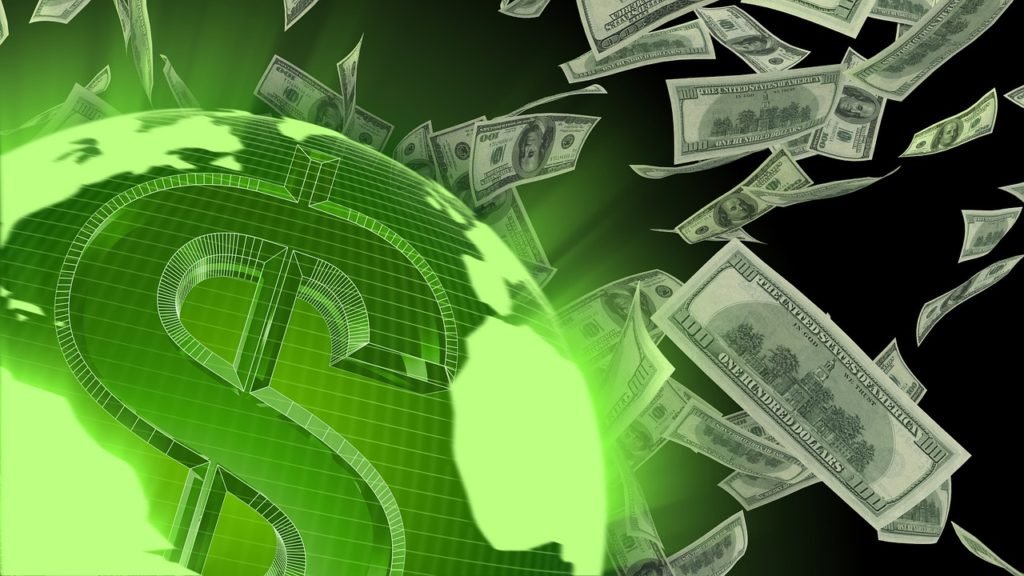
One of my dreams for myself and anyone that cares to follow my disc golf voyage (I’m deliberately trying not to use the word “journey”) is that we can all retire early from our jobs and free up more time for disc golf. If you’re interested to read about my specific plan (which I borrowed from other more learned folks) let me know in the comments and I’ll pen that post!
I do have one post called Disc Golf: Do It All For The Money! which gives ideas as well.
As you’ll see, a lot of the ideas below will also save you money!
Reduce Clutter! In addition to being more eco-friendly and saving more money, a lot of the ideas will also reduce clutter in our lives.
It’s nice side benefit that many of us (myself included) would probably benefit from.
This sounds like a win-win-win and I hope you agree that it is…
Walking the Apolitical, “Non-Judgy” Tightrope!
At first blush, this doesn’t seem all that difficult to do. What’s political about being eco-friendly?
But, as I’m sure you know, people get heated on topics that dip into the realm of politics.
And when words like money, capitalism, conservation, etc. get bandied about, political winds start blowing in!
I’m not interested in that for this post.
In addition, people also don’t want people talking down to them from their high horse (I know I don’t!).
If you think I’m doing that, feel free to let me know in the comments and I’ll try to adjust.
Finally, I want this to be realistic.
What are some small, relatively easy things we can all do that are also realistic?
If my end message is to go off the grid and build a cabin in Alaska and ride your repurposed truck that runs on french-fry grease, then that’s just not realistic… Though props if you do!
So, with that in mind, here is what I came up with!
These are my eco-friendly, non-judgy, apolitical, somewhat low-maintenance things disc golfers can do to help the environment.
Bar Your Soap, Shampoo and Conditioner!
Not telling you not to use soap, shampoo or conditioner.
But what about bars of soap, shampoo and conditioner instead?
Somewhere along the lines, massive plastic bottles of liquid soap and luffas for the shower came into style. And shampoo/conditioner have always come that way…
I was recently introduced to the idea of shampoo bars and I’m never going back.
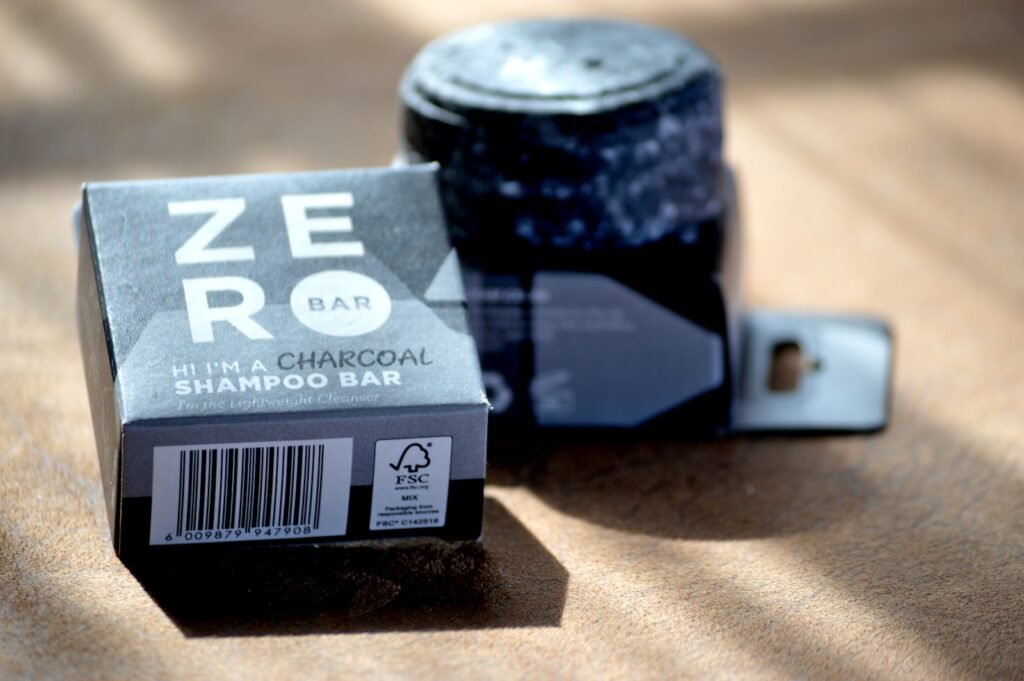
You wet your hair, swipe the shampoo bar across your hair (barely touching it) 2 or 3 times, lather and rinse.
These bars last forever and there’s no plastic at all to speak of.
Think how much plastic could be saved if we all just went back to barred soap and tried the same for shampoo/conditioner?
This site has bars of shampoo and conditioner. (I just learned about conditioner bars and will be trying those soon…)
Not controversial, but potentially quite helpful in reducing plastics put out into the world!
Unsubscribe, Go Paperless and Delete!
Not from me! Don’t do that!
My subscription only signs you up for one email per month with my latest posts. And if nothing piques your interest, you can just delete it. (Subscribe to my site here!)
No, what I’m talking about are the massive spammy emails that we all get and we didn’t even know we signed up for.
I’m also talking about the countless magazines we get in the mail because we bought one thing one time 6 years ago.
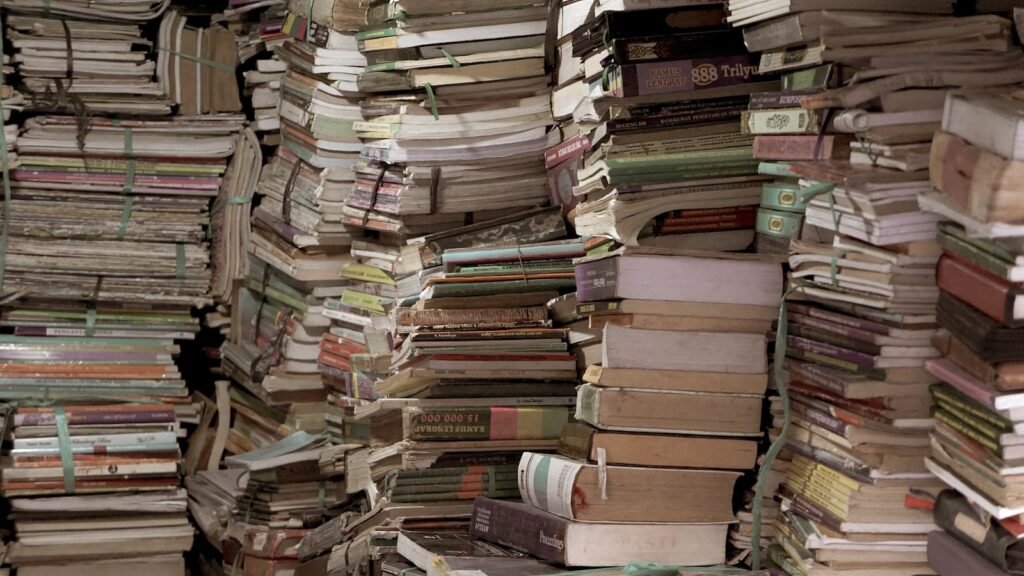
Here’s a plan I did once to get rid of most of it. I saved all the magazines I got for 3 months in a pile. Then, on a Tuesday, I took a day off of work and I spent about 1 – 2 hours calling up and asking to be removed from all of their mailing lists.
Then, after that, as leftover magazines would trickle in, I could do it in smaller batches.
“But why bother unsubscribing from electronic spam?” you ask.
Well, I just found out that the amount of energy data storage centers use just for emails is staggering. As in whole-number percentage points of the entire world’s energy consumption type of staggering.
So what can we do with those random emails that clutter our inbox and our lives?
Get in the habit, as soon as you get them, of unsubscribing and deleting unneeded emails and believe it or not, you’re doing something!
Another added benefit of this is that it naturally declutters your life. I don’t think it’s controversial to say I don’t like clutter. Once you get rid of the physical and electrical subscriptions, it definitely makes an impact and it’s glorious.
Also, it probably saves you a bit of money because you’re not tempted by making purchases.
This next one will save you money as well…
Buy Used!
There is a lot of stuff in the world that gets produced but not necessarily used until the completion of its full life.
As a result, there are high quality products at a fraction of the cost.
We already spoke about buying used discs.
But here are some other common products that you’ll be just as well buying used.
Clothing – The fashion industry is insatiable. It seems like every week a new item is in and last week’s item is out. You can look it up, but some of the facts I’m reading have over 10-million tons of clothing getting dumped into landfills or burned per year. That can’t be good! And a lot of the fibers are made from, yup, you guessed it, plastic.
So, buy used clothing for yourself, your kids, and others at your local Goodwill, Salvation Army, or church sales. You can also go for the “classed up” used clothing at sites like Thredup.
Toys – You know that feeling we get when we get a new disc and the dopamine floods your system? Imagine what that’s like for a kid and their not yet fully developed brain. And when an adult sees the look a kid gets, sometimes they want to keep getting that kid more and more stuff.
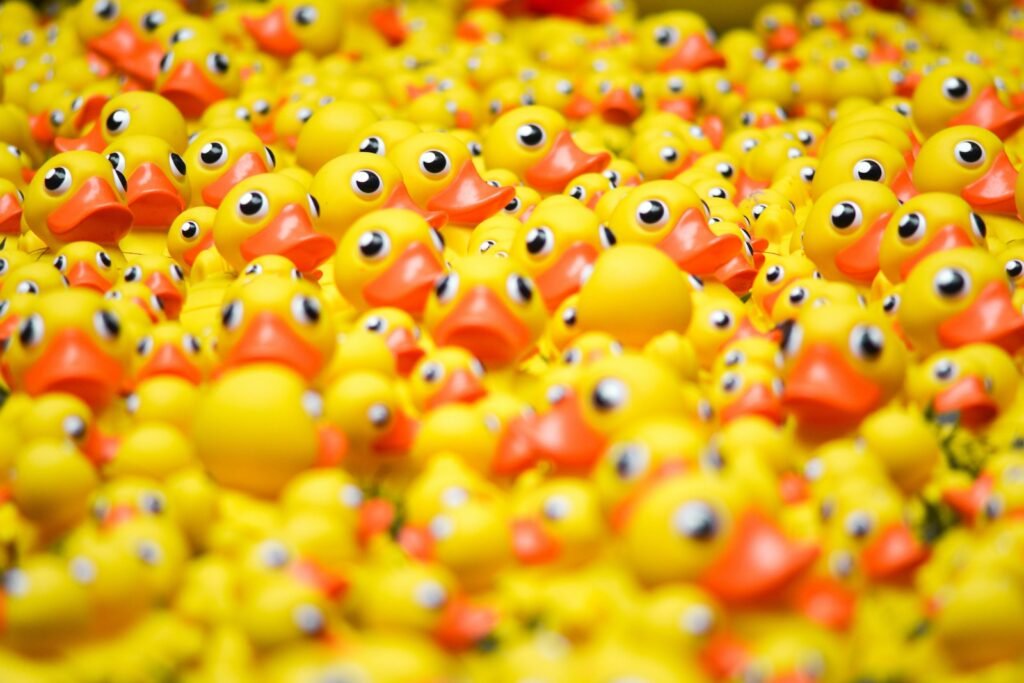
Well, what if those toys were used?
Most kids won’t know the difference between slightly used and new. And once they do, they’re probably old enough to understand why you’re buying used and learn to prefer it!
The toy industry churns out new toys in the millions of tons. Most of it is plastic. Plastic is meant to last hundreds of years. A kid, developmentally, usually grows out of a toy in a year at most. There’s a discrepancy there!
Other – I won’t go through everything, but let me know in the comments if there is one you think I should include! Other items that I’ve found that you might consider getting used are tools, furniture, bikes, musical instruments, textbooks, phones, jewelry, wedding supplies, furniture, etc.
Buy used. Save money. Reduce demand. We all win.
Use Reusable Containers
There are any number of examples that fit this category. Here are some of the heavier hitters that could help make an impact.
Reusable Grocery Bags – Bringing reusable grocery bags into the supermarket helps reduce waste. If you don’t have one, see if you can reuse grocery bags you already have. You can also think about getting creative with any other bags in your house that could be used for groceries.
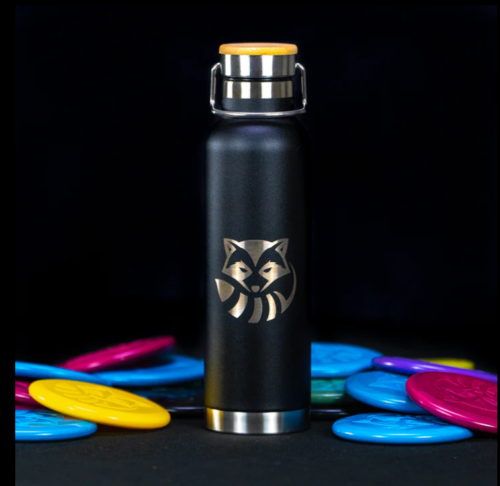
Use Reusable Bottles – Rather than buying water in disposable plastic bottles, get a reusable bottle and fill that up with water instead. Trash Panda sells reusable bottles if you don’t have one. They also sell something that leads into the next idea.
Make Your Own Coffee – If you make your own coffee and bring it with you, you save money and reduce trash. Another option is to bring your reusable container to the coffee shop you frequent and fill that up instead (a nice benefit is that it will probably keep the coffee warmer for longer as well!). You can find the Trash Panda water bottles and coffee at their store found here! (Not an affiliate!)
Take A Picture Why Don’t You? (Instead of Souvenirs)
This is a quick one for when we go on vacation.
Often times we are swept up in the moment and want to remember the great times we had with a small token.

Then, if you’re like me, in a year’s time that small token has far less appeal. Eventually, I might even (read: will) donate it.
So, instead, just take a picture and mentally have that be your souvenir! Just a thought.
But what about gifts for others from my vacation?
Send a postcard and let them know you’re thinking of them!
If my own mementos lose value for my vacations, wouldn’t mementos from the vacations of others lose value even faster?
This segways well into the next section…
Discuss and Plan Gift Norms with Others
By now you’ve probably guessed that I am NOT a romantic. My sincere apologies to my wife (and my sincere gratitude as well to her for sticking with me).
But, is it just me or does it feel like it’s a special gift giving occasion every other week?
Birthdays for every loved one. Father’s/Mother’s Day. Anniversaries. Valentine’s Day. Weddings. Baby Showers. Bridal Showers. Graduations. Housewarming. And obviously the big holidays. There’s more, but you get the idea.
There are plenty of scholarly articles out there about how much anxiety these acts cause for all parties.
And a lot of times, if we’re being honest, we don’t want half the stuff we get. Or, we’ll shoehorn it into our lives to show how much we appreciate it.
One strategy I read about to combat this is to have a discussion around gift giving with loved ones. You can cite your desire to create less stuff in the world, but you can also reference the money you’ll all save and the stress you’ll reduce.
Again, not romantic, but you can also have a gift swap where everyone writes down one thing within an agreed upon price range that they actually want. Then you know you’re hitting the mark.
Just an idea but I do think it reduces waste, saves money and lowers anxiety. It could be good to try!
Hang Your Clothes/Dryer Balls
Winter is the season of cracked lips and dry skin.
That also means it’s great for drying your clothes.
Save on electricity AND put moisture in the air.
Summer is the season of high sun.

Also great for drying clothes.
Enter the clothes drying rack or clothes line.
Some people get creative running retractable clothes lines in their homes.
It’s nothing astronomical for energy, but it adds up when everyone does it.
In addition, for times you do use the dryer, try dryer balls.
From what I see, they reduce drying time by 30% and up. They can also be homemade.
It connects to the next idea as well…
Try Used Cloth Diapers
I don’t think they make these in adult sizes for when you go on that epic bender and get placed in your bed by your friends who argue over you, in their own stupors, whether or not they should prop you up on your side with pillows (the internet says they should btw).
No, this is for the little ones in our lives that I mostly speak of.
Disposable diapers fill landfills with super absorbent chemicals and are mostly not biodegradable.
Reusable diapers, however, need laundering (which uses energy/water).
If you use cloth diapers, you definitely save money and put less in a landfill.
If you buy them used and dry them on a line you’re also doing better by the environment as well! That’s according to this NY Times article at least.
Then, when you’re done, clean them well, and sell them again on Craigslist for even more impact/savings!
Use The Library!
I’m a teacher.
And about 8 years ago, I realized something.
Kids only want the newer books (for the most part).
I realized this when I couldn’t pay kids to read Harry Potter (And this was well before any JK Rowling controversies).
They just weren’t that interested.

That book series had been the biggest thing since sliced bread. Everyone was talking about it. People were getting Harry Potter tattoos left and right.
And now they’re not interested?
To date, from what I see, over 600 million copies of books in that series have been sold. What happens to them all after the fervor has died down? I think we know the answer.
The same is true for other books as well.
Many of us have so many positive associations with books and rightly so!
But we also usually only read them once.
So, instead of buying, get them from the library. If you want it for your own library (or your kids’ libraries) because they get mass-produced and then lose steam, you can surely get it used.
This saves money, supports libraries, declutters and reduces demand!
Buy High Quality!
When we do buy something new, it probably helps to make sure it’ll last a long time. That way we don’t have to throw it away and get a new one.
So, be sure to read reviews and get high quality products.
One example I have in my teaching life is my stapler.
Somewhere along the way I inherited a stapler that has to be at least 50 years old.
It’s the best stapler I’ve ever used. Many new ones are made with cheap parts (especially that spring that overstretches too easily) and are always breaking down.
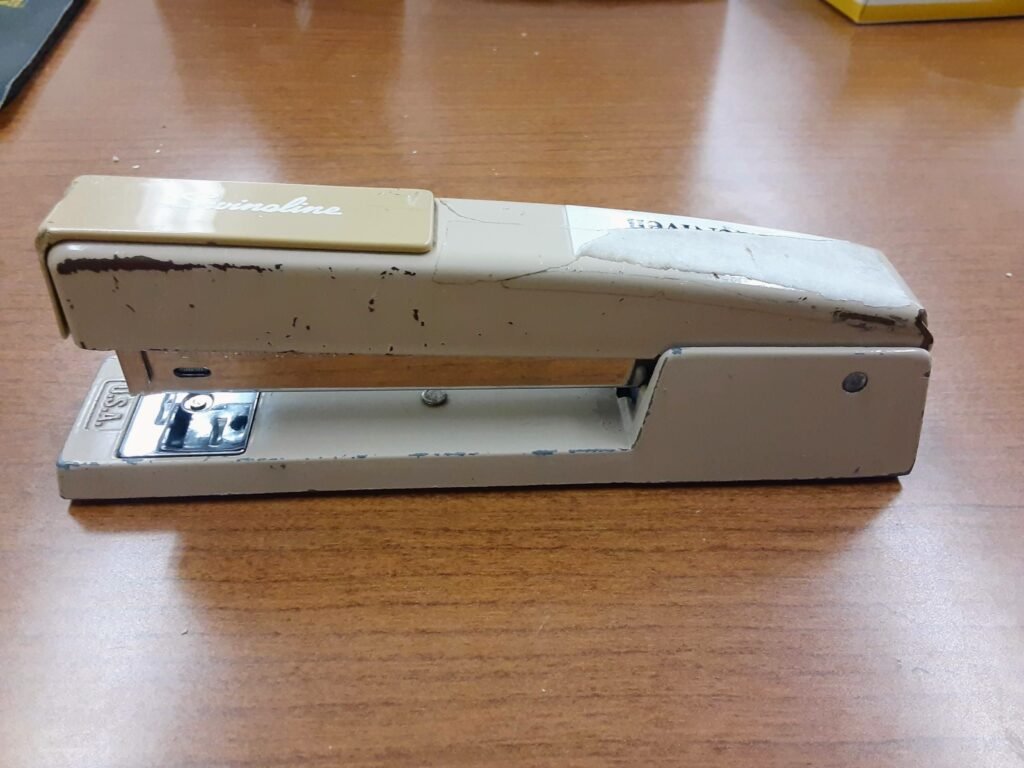
My stapler however, is a beast! If a tornado hit the school, my stapler would prevent the school from being carried away.
Another example in my own home that I bought new was a can opener.
I want this thing to be passed down to my great-great grandkids.
I think it could as well! It’s sturdy and it’s got some serious heft to it.
If a tornado hit the house, my can opener would prevent the house from being carried away (See, I even recycle jokes!).
This might cost a little more, but it’s probably well worth it (and may save you in the long run because you don’t have to buy it again).
Buy high quality products so they last many lifetimes!
Reevaluate Certain Traditions
Not looking to get controversial! Let’s see how I do.
I just think that, a lot of times, we do things because it’s the way we’ve always done them and maybe it’s worth it to reevaluate.
Here’s an example. When I got married, a common bit of advice I heard is that we’re really going to want our own set of dinnerware for those nicer meals. You know the ones. They sit in a glass cabinet in everyone’s house and they come out for special occasions.
Fine! I don’t mind special dinnerware.
But here’s the other thing. Both sets of grandparents had them. So did my Aunt Gladys. So do my parents. And the same is true for my wife’s side of the family. She has one sibling and so do I and by my count, we’re due to inherit 7 sets of dinnerware.
For the most part, forks, spoons, knives, gravy bowls and plates outlast humans.
And humans have been collecting these things for hundreds and hundreds of years.
So, in this example, maybe it’s worth it to see if there’s a set that already exists?
Chances are there’s a family member that would love to unload an extra set of dinnerware and keep it in the family.
And if that resonates with you, maybe there are other traditions/conventions that are worth a second look as well?
Save money, keep it in the family, and don’t put new stuff in the world.
Eco Friendly Disc Golf – Miscellaneous
In my “research” I found a few other things that fall under the “miscellaneous’ category.
They are as follows:
- Ask for “no straw” in your drink when you eat out.
- Reuse the cereal bags for snack bags out on the course or in lunches.
- Ride your bike/use public transportation more.
- Compost (less trash that’s less smelly and save on fertilizer for your garden).
- If possible, grow some of your own food in a garden.
- Ditch the grocery store plastic bags for your fruits and veggies when possible (BYO or realize you’re going to wash them anyways).
- Avoid disposable baking pans (you can also wash and reuse them!)
- Ask for no plastic utensils for take out.
- Related to 1 and 8, thank waiters/business who ask “Would you like a straw/to-go utensils?” to which you respond, “Thank you for asking, and no I would not…”
Spread The Word!
We all want to leave the world a better place than we found it.
And I do try to do a lot of the things listed above in this post.
However, I’ll speak for myself, but a harsh reality is that I alone, from an ecological perspective, do not leave the world better.
Ouch! The truth hurts!
And the truth is that I buy/drive cars, buy groceries in plastic, run electricity, and on and on it goes…
No, the only way that I can actually leave the world ecologically better than I found it is by influencing others to take steps as well.
So, whether it’s this post, or any other way, spreading the word on eco-friendly practices is a great way to help be more eco-friendly.
Eco Friendly Discs!
Bringing it back to disc golf, another way we can help is by purchasing eco-friendly discs.
This sends a message to the companies that the consumer does want more eco-solutions.
Then, these companies begin to invest more in their eco-plastics and it keeps building positive momentum.
It also shows the manufacturers that this is a viable path to maintain their business.
Jesse has done a lot more research on this than I have. He has a video on some eco-discs that you can watch here.
After, I will list as many as I can find, if you are interested.
The following discs are the ones featured in Jesse’s video. If you don’t want that particular disc, you can find a disc of your choosing and be sure to select the plastics listed below in order to make it eco!
Note: In the interest of transparency, any product links from here on out will be affiliate links (unless otherwise specified). This just means that I get a small percentage of the commission at no extra cost to you. Thank you for helping to support my midlife crisis passion project!
Here are the current recycled lines from the major manufacturers that are available right now.
Latitude 64 Recycled

The Recycled Line from Latitude 64 uses recycled plastic and flies like it’s beat in straight out of the box. See the Lat64 Line here!
MVP R2 Plastics

The R2 Line from MVP uses a certain percentage of recycled plastics. You can see their full lineup here!
DD Bio Fuzion

The Bio Fuzion line from Dynamic Discs combines Lucid and Fuzion plastics. See their full line here!
Westside Revive

The Revive plastic from Westside is made from their VIP and Tournament plastics. You can see their full lineup here!
Kastaplast Regrind

The Regrind from Kastaplast was the “rare” disc Jesse spoke of so I certainly won’t have access to it! Nevertheless, it’s worth a mention!
The “Other” Category of Eco-Discs!
These are the discs that Jesse highlights that aren’t just simply made from recycled discs.
As he says, “the other category is where things get pretty interesting.”
Let’s look!
Elevation Discs

Elevation has the ecoFLEX and ecoSUPERFLEX molds made from recycled rubber. I didn’t see “ecoFLOP”. Check out all of Elevation’s Disc Offerings Here!
Yikun Discs Nature Line

The Nature Line from Yikun is the one that uses a “healthy dose of sawdust”. This does limit its future recyclability but also uses less virgin plastic. Find Yikun’s full lineup here!
Latitude 64 Eco Plastic

This Eco Plastic from Latitude 64 is what is known as a “bio plastic”. That means it is made from plant-based oils (instead of petroleum). Initial response was not overwhelming to its feel, but I applaud the effort! Here’s their full line!
Gateway Organic and Hemp Plastics!

The Organic Line combines bioplastics and recycled rubbers. The Hemp Line uses hemp plastic which is a specific bioplastic. Find Gateway’s full lineup here!
AGL Discs!

Above Ground Level (AGL) is made by Gateway and every one of their discs is made with some recycled plastic.
See their full lineup here!
Trash Panda Disc Golf!

And of course, let’s not forget Trash Panda‘s 100% recycled/recyclable disc(s) that can be found here (not an affiliate)!
There you have it! Those are the eco-discs that Jesse outlined. By purchasing, disc golfers send a message that they will support more eco-friendly lines of discs as well as sending the message to manufacturers to keep innovating!
Let’s put a bow on this post!
Eco Friendly Disc Golf – In Summary
So, how’d I do?
Was I able to give ideas without sounding like a condescending douchenozzle?
Honestly, in doing my post on Trash Panda I got interested in this and discovered a lot of ideas for my own life as well. That’s how it all came about.
Hopefully, some of these resonate with you as well.
If you found anything interesting, let me know in the comments.
Like I said at the start, I really connected with the idea of disc golf being one of the leaders in sustainability.
That way we can pass on our amazing game for generations to come!
Thank you for reading! If something resonated with you, or if you have other ideas that should have made this post, let me know in the comments.
If you are interested in following my plans to start with a course in my back yard and go around the world playing disc golf (documenting all the while) then be sure to subscribe. It’s obviously free, and only commits you to an email per month (or less). And I certainly don’t Spam. Thank you for considering.
While you’re here, check out some of my other posts!
- The MVP Trail Disc – Should you Get it?

- Luke Humphries & Co. Launch GoThrow Tour!

- The Making of Stokely Discs!

- Sockibomb Foundation – Greatly Growing the Sport!
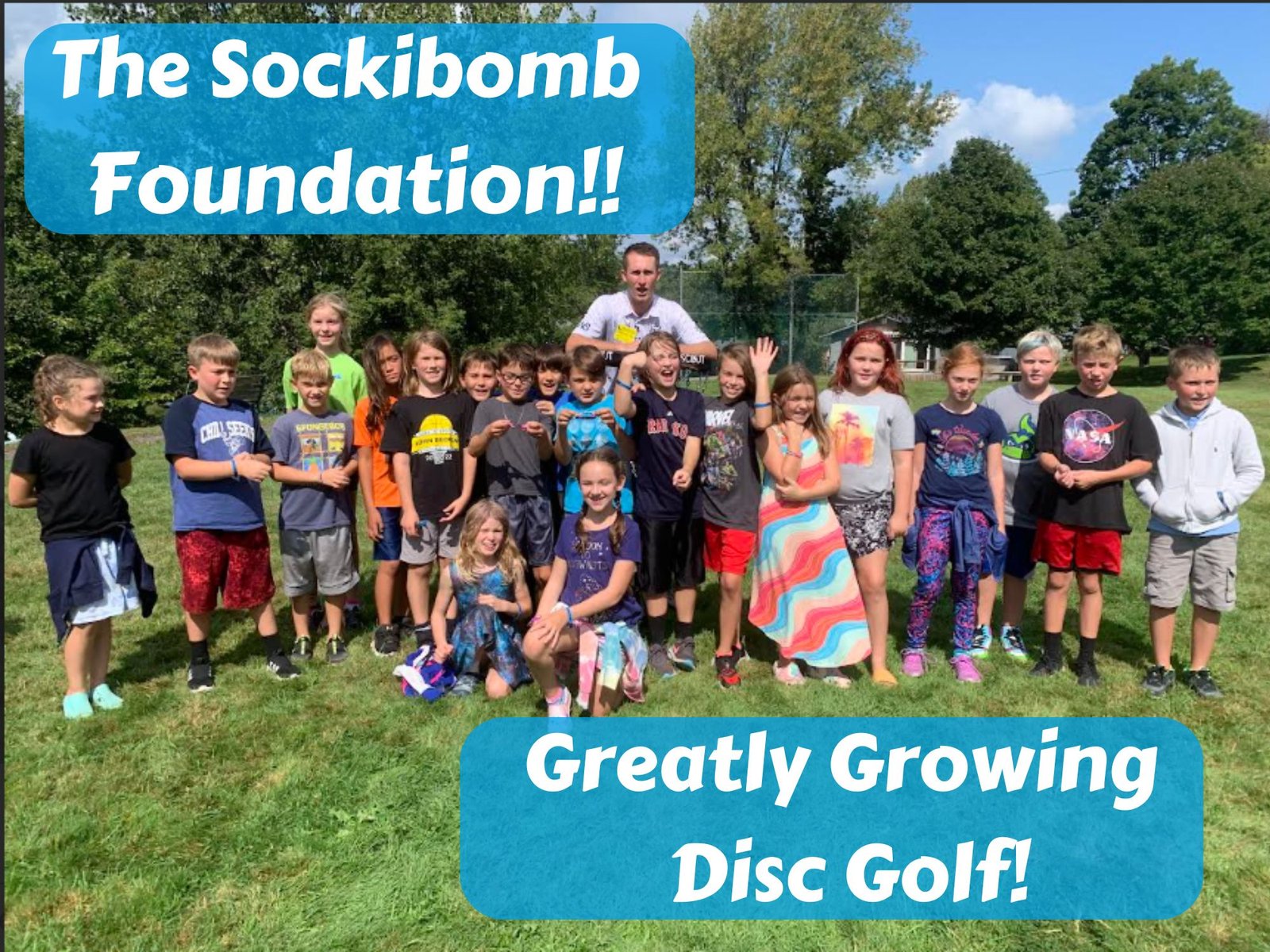
- Doomsday Discs: What to Stock Up on Before The End!

- Latitude 64’s Jonathan Fastborg: Inside the Mind of One of Disc Golf’s Favorite Content Creators

Note: This page contains affiliate links. This just means that if you click on a link and make a purchase, I get small percentage of the sale, at no extra cost to you. Thank you for supporting my disc golf passion project!



Comments are closed.